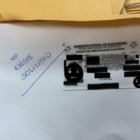English
Electronic Vote Count in Puerto Rico was Overpriced, but Mostly Failed Across-the-Board on Election Day
|
Machines that did not recognize the electronic key to get the process going at the polling stations; others that did not read or in which the ballots got stuck; some that shut off in the middle of the voting process; and many that were unable to transmit the results. In other polling stations, memory cards were damaged during the voting process or simply never worked. This was the type of failure that was repeated in almost all polling stations during the 2020 election process, the Center for Investigative Journalism (CPI, in Spanish) confirmed with more than 20 sources. When the State Elections Commission (SEC) was asked for a record of reported equipment failures in polling stations, the agency did not release the information. The CPI learned that to this date, there isn’t a complete report of how many machines experienced malfunctioning or information about how many of those cases were related to a lack of maintenance, because the SEC does not have a formal, agile and consolidated procedure to collect this information.




